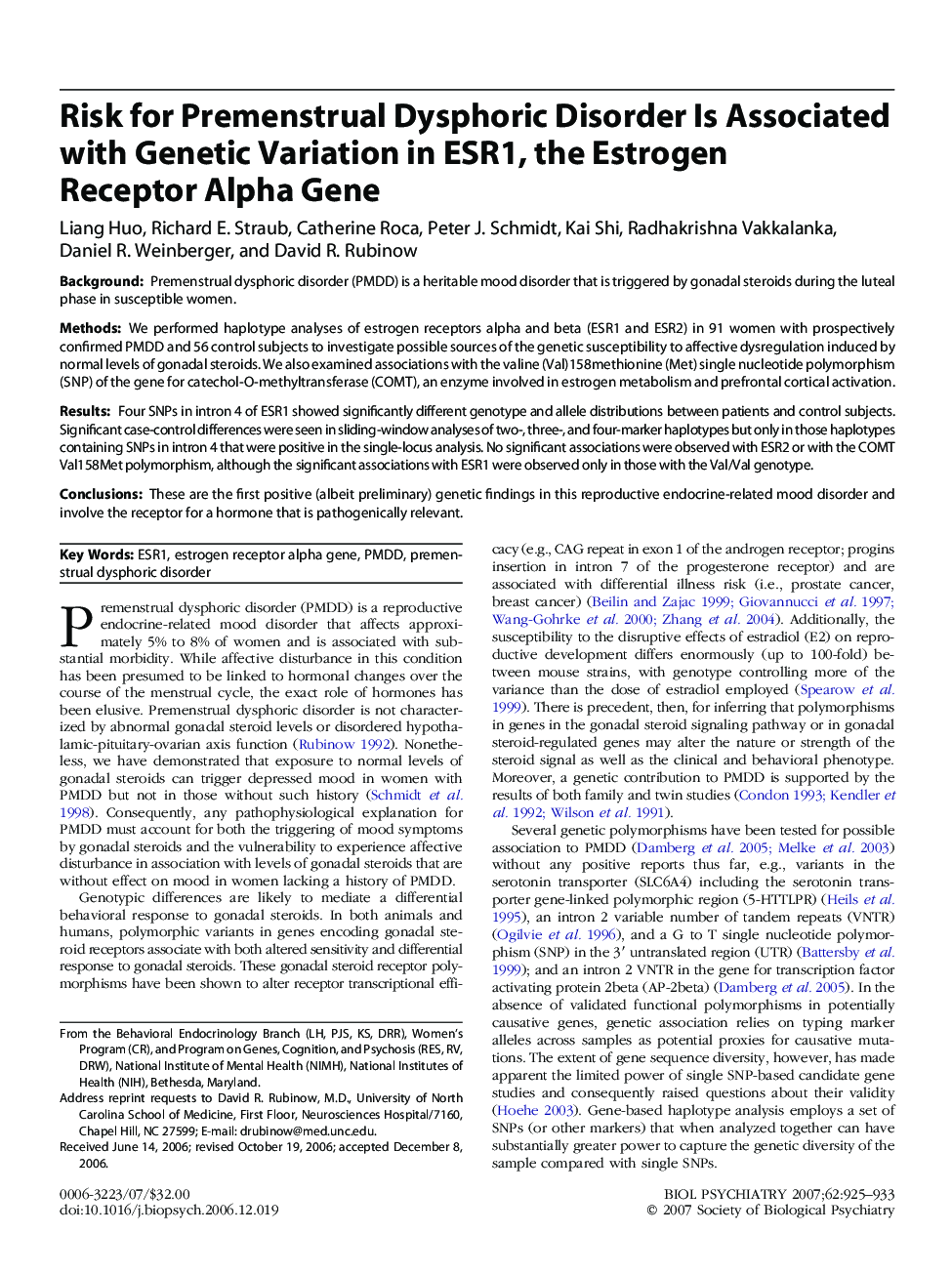| Article ID | Journal | Published Year | Pages | File Type |
|---|---|---|---|---|
| 4180330 | Biological Psychiatry | 2007 | 9 Pages |
BackgroundPremenstrual dysphoric disorder (PMDD) is a heritable mood disorder that is triggered by gonadal steroids during the luteal phase in susceptible women.MethodsWe performed haplotype analyses of estrogen receptors alpha and beta (ESR1 and ESR2) in 91 women with prospectively confirmed PMDD and 56 control subjects to investigate possible sources of the genetic susceptibility to affective dysregulation induced by normal levels of gonadal steroids. We also examined associations with the valine (Val)158methionine (Met) single nucleotide polymorphism (SNP) of the gene for catechol-O-methyltransferase (COMT), an enzyme involved in estrogen metabolism and prefrontal cortical activation.ResultsFour SNPs in intron 4 of ESR1 showed significantly different genotype and allele distributions between patients and control subjects. Significant case-control differences were seen in sliding-window analyses of two-, three-, and four-marker haplotypes but only in those haplotypes containing SNPs in intron 4 that were positive in the single-locus analysis. No significant associations were observed with ESR2 or with the COMT Val158Met polymorphism, although the significant associations with ESR1 were observed only in those with the Val/Val genotype.ConclusionsThese are the first positive (albeit preliminary) genetic findings in this reproductive endocrine-related mood disorder and involve the receptor for a hormone that is pathogenically relevant.
